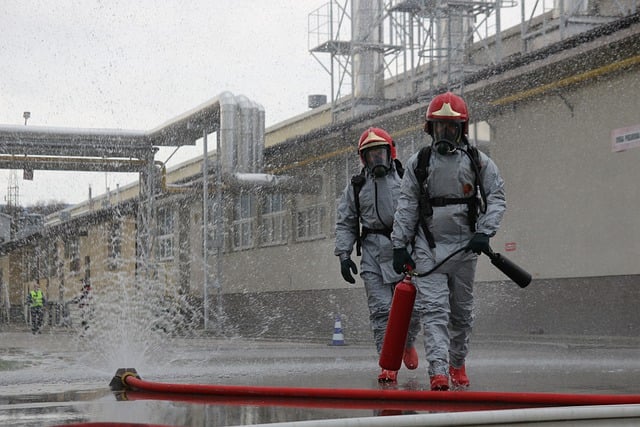Understanding Accident Insurance: Protection When You Need It Most
Accidents can happen to anyone, at any time, and often when we least expect them. Whether you're commuting to work on your motorcycle or going about your daily routine, the unexpected can occur in the blink of an eye. This is where accident insurance comes into play, offering a financial safety net when you need it most. Let's explore what accident insurance is, how it works, and why it might be an essential consideration for you and your family.

When you have an accident insurance policy and suffer a covered injury, you’ll typically receive a lump-sum payment. This payment is made directly to you, not to healthcare providers, and can be used however you see fit. Whether you need to cover medical expenses, replace lost income, or pay for everyday living expenses while you recover, the choice is yours.
How does accident insurance differ from health insurance?
While both accident insurance and health insurance provide financial protection for medical situations, they serve different purposes and work in distinct ways. Health insurance is your primary coverage for medical care, covering a wide range of health-related expenses, from routine check-ups to major surgeries. It typically involves copayments, deductibles, and works with a network of healthcare providers.
Accident insurance, on the other hand, is a supplemental policy that pays out directly to you when you suffer a covered injury. It doesn’t replace your health insurance but rather complements it by providing additional financial support. The key difference is that accident insurance payments are not tied to specific medical expenses – you can use the money for any purpose, including non-medical costs related to your accident.
What types of accidents and injuries are typically covered?
Accident insurance policies can vary, but they generally cover a wide range of injuries resulting from accidents. Common coverages include:
-
Fractures and broken bones
-
Dislocations
-
Concussions and other head injuries
-
Burns
-
Lacerations and cuts requiring stitches
-
Injuries from sports or recreational activities
-
Injuries from motor vehicle accidents, including motorcycle accidents
It’s important to note that accident insurance doesn’t cover illnesses or medical conditions that aren’t the result of an accident. For instance, if you develop a chronic illness or need surgery for a non-accident-related condition, your accident insurance won’t provide coverage for these situations.
When should you consider getting accident insurance?
Accident insurance can be beneficial for a wide range of individuals, but it may be particularly valuable in certain situations:
-
If you have a high-deductible health insurance plan: Accident insurance can help cover out-of-pocket expenses before you meet your deductible.
-
If you participate in high-risk activities: Motorcycle enthusiasts, extreme sports participants, or those with dangerous occupations might find accident insurance especially useful.
-
If you’re the primary breadwinner: Accident insurance can provide financial support if an injury prevents you from working.
-
If you have dependents: The extra financial cushion can help ensure your family’s needs are met if you’re injured and unable to work.
-
If you have limited savings: Accident insurance can prevent you from depleting your savings or going into debt due to accident-related expenses.
How much does accident insurance typically cost?
| Provider | Coverage Type | Estimated Monthly Premium |
|---|---|---|
| Aflac | Individual | $6 - $30 |
| Allstate | Family | $20 - $50 |
| MetLife | Individual | $8 - $25 |
| Cigna | Family | $25 - $60 |
Prices, rates, or cost estimates mentioned in this article are based on the latest available information but may change over time. Independent research is advised before making financial decisions.
The cost of accident insurance can vary widely depending on factors such as your age, occupation, the level of coverage you choose, and whether you’re insuring just yourself or your entire family. Generally, accident insurance is considered relatively affordable compared to other types of insurance. As shown in the table above, monthly premiums can range from as low as $6 for basic individual coverage to around $60 for comprehensive family plans.
It’s worth noting that many employers offer accident insurance as part of their benefits package, often at group rates that may be more affordable than purchasing a policy on your own. If you’re considering accident insurance, it’s a good idea to check if it’s available through your workplace before exploring individual policies.
What should you consider when choosing an accident insurance policy?
When selecting an accident insurance policy, there are several factors to keep in mind:
-
Coverage limits: Look at the maximum payout for different types of injuries and ensure it aligns with your potential needs.
-
Exclusions: Carefully review what isn’t covered under the policy to avoid surprises when you need to make a claim.
-
Benefit schedule: Understand how much the policy pays for specific injuries or treatments.
-
Portability: If you’re getting coverage through work, check if you can take the policy with you if you change jobs.
-
Additional riders: Some policies offer extra coverage for things like accidental death or dismemberment.
-
Claims process: Research how easy it is to file a claim and how quickly benefits are typically paid out.
Accident insurance can provide valuable financial protection and peace of mind in the face of unexpected injuries. By understanding how it works and carefully considering your needs, you can make an informed decision about whether this type of coverage is right for you and your family. Remember to review multiple policies and providers to find the best fit for your specific situation and budget.






